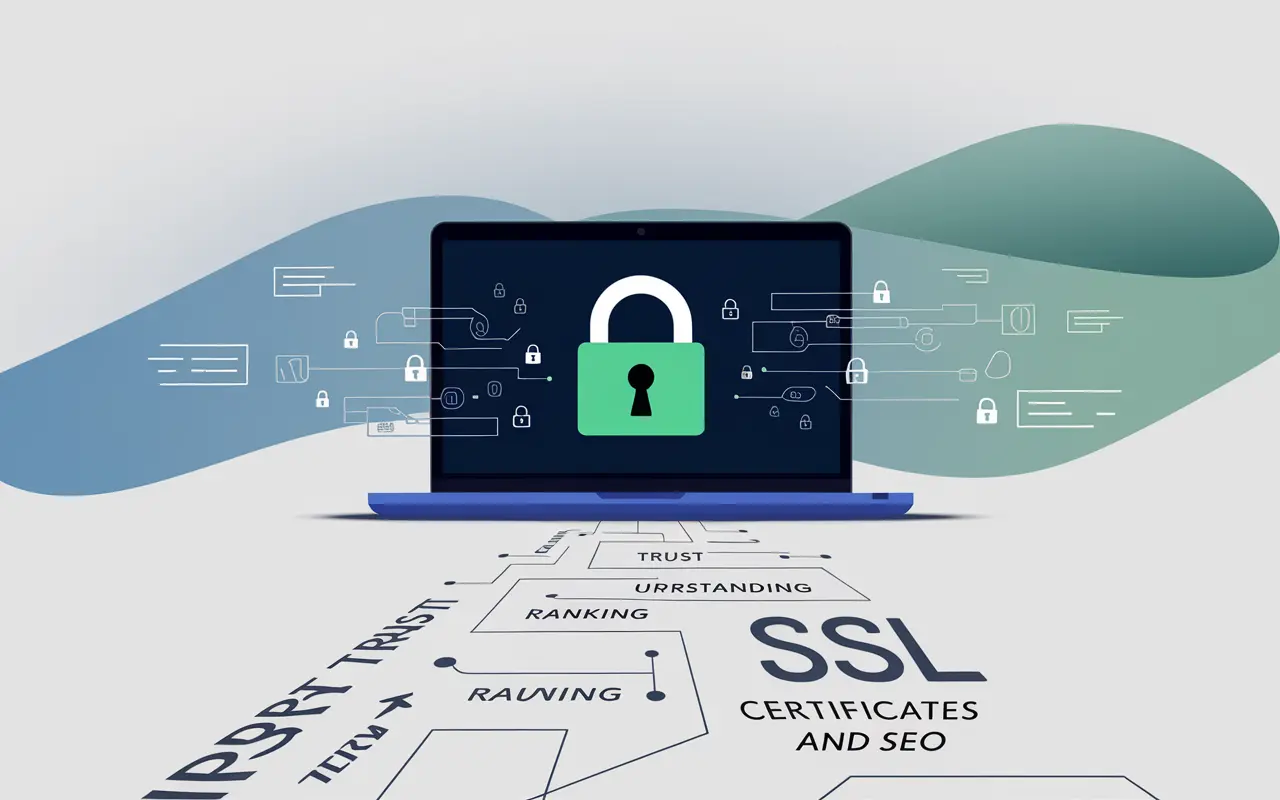What Are SSL Certificates and Their Role in SEO?
SSL (Secure Sockets Layer) certificates are digital security protocols that encrypt data transferred between a user’s browser and a website server. In the SEO space, they play a crucial role in building trust, ensuring site security, and even contributing to search engine rankings. Google has emphasized HTTPS as a ranking signal since 2014, making SSL implementation not just a best practice, but a necessity for SEO success.
A correctly implemented SSL certificate results in a website URL beginning with HTTPS instead of HTTP. It also displays a padlock icon beside the URL in most browsers – a visual indication of safety to users. In short, an SSL certificate is foundational to a site’s credibility, user trust, and SEO health.
Key Takeaway
SSL certificates enhance your site’s security and credibility — both of which are essential SEO ranking signals that directly impact user trust and search visibility.
Why SSL Certificates Matter in SEO Strategy
Google has been giving preference to secure websites since it rolled out HTTPS as a ranking factor. Websites without SSL certificates may be flagged as “Not Secure” in browsers, driving users—and potential rankings—away.
Visit our main SEO Services page to learn more about how security factors into full-service optimization strategies.
SSL and User Trust
Websites without SSL certificates display warnings in browsers that scare users away. In contrast, SSL-certified sites offer peace of mind and increase engagement.
SSL and Conversion Rates
A secure website makes users more likely to enter sensitive information, like payment details or contact forms, improving lead generation and ROI on SEO investments.
SSL and Search Rankings
Google prioritizes safe web experiences. It outright gives ranking boosts to HTTPS websites. While it’s a lightweight factor, combined with others, SSL can tip the scales in competitive niches.
Best Practices for Implementing SSL Certificates for SEO
- Choose a Trusted SSL Provider: Work with reputable Certificate Authorities (CAs) like Let’s Encrypt, DigiCert, or Comodo for reliable certificates.
- Redirect all HTTP traffic to HTTPS: Use 301 redirects to ensure search engines index your secure pages, not outdated ones.
- Update Internal Links: Make sure all internal URLs point to the HTTPS version to prevent mixed content warnings.
- Update Canonical Tags: Ensure they reflect HTTPS versions of URLs to avoid duplicate content issues.
- Verify with Google Search Console: Submit the HTTPS version of your site to maintain accurate indexing and tracking.
- Test for Mixed Content: Use tools like WhyNoPadlock or SSL Labs to find insecure assets that might break HTTPS chains.
How SSL Certificates Work in SEO
SSL operates using encryption protocols and handshakes between browsers and servers. Once installed, it secures data through public and private key exchange, ensuring sensitive data like passwords, emails, or credit card numbers remain secured during transmission.
Behind the Scenes: How Search Engines Treat SSL
When Googlebot crawls your site, it identifies whether your server supports HTTPS and if your URLs serve secure content. If a site lacks SSL or is poorly configured (e.g., has mixed content), the crawler may index these pages lower or not at all.
| SEO Element | Impact With SSL | Impact Without SSL |
|---|---|---|
| Ranking | Positive boost, signals trust | Small negative ranking signal |
| User Trust | High – padlock gives confidence | Low – “Not Secure” warnings |
| Conversions | Higher due to user confidence | Lower due to trust issues |
Case Study: How SSL Implementation Boosted Organic Visibility and Conversions
Problem: High Bounce Rates from “Not Secure” Warning
A mid-sized e-commerce business struggled with declining traffic and increasing bounce rates. User behavior data showed visitors were leaving the site upon seeing the “Not Secure” message in Chrome.
Solution: Full SSL Certification and HTTP to HTTPS Migration
We implemented an EV SSL certificate, redirected all HTTP URLs to HTTPS with proper 301 redirects, updated all internal and canonical links, and re-verified the site on Google Search Console.
Results: 38% Increase in Organic Traffic and 25% Better Conversion Rate
The site saw a 38% increase in organic traffic within 60 days. Conversion rates improved by 25%, and bounce rates dropped significantly.
Common Mistakes to Avoid With SSL Certificates and SEO
- Forgetting 301 Redirects: Not redirecting HTTP to HTTPS confuses both search engines and users.
- Serving Mixed Content: Images and scripts over HTTP trigger security warnings, defeating the purpose of SSL.
- Not Updating Sitemaps and Robots.txt: These files should list HTTPS URLs to ensure full crawlability.
- Reissuing Without Re-Verification: When certificates expire or are changed, re-verify in Google Search Console.
Related Terms
Technical SEO: Involves backend optimizations, including SSL implementation, site speed, and crawlability.
Page Speed: SSL certificates can slightly impact loading if misconfigured, making it a performance concern tied to SEO.
Domain Authority: A secure, trusted site positively impacts perceived authority.
FAQs About SSL Certificates and SEO
Yes, Google confirmed that HTTPS is a ranking signal. Although it’s a minor factor, it contributes positively to overall site ranking, especially when competition is high.
Indirectly, yes. Since HTTPS enhances trust and search ranking, it can lead to higher click-through rates and traffic over time.
If your website displays a padlock in the URL bar and opens with “HTTPS,” your SSL certificate is installed correctly. Use SSL-check tools for deeper validation.
Yes. Free SSL providers like Let’s Encrypt are sufficient for SEO and security. Just ensure proper configuration.
Conclusion: Secure Your SEO with SSL
SSL certificates are no longer optional — they are foundational to modern SEO strategies. By improving user trust, protecting data, and signaling safety to search engines, a secure (HTTPS-enabled) site drives more traffic, builds credibility, and ultimately converts better. It’s one of the easiest technical upgrades any website can implement with long-term SEO benefits. For a secure SEO blueprint tailored to your website, visit our SEO services now.






